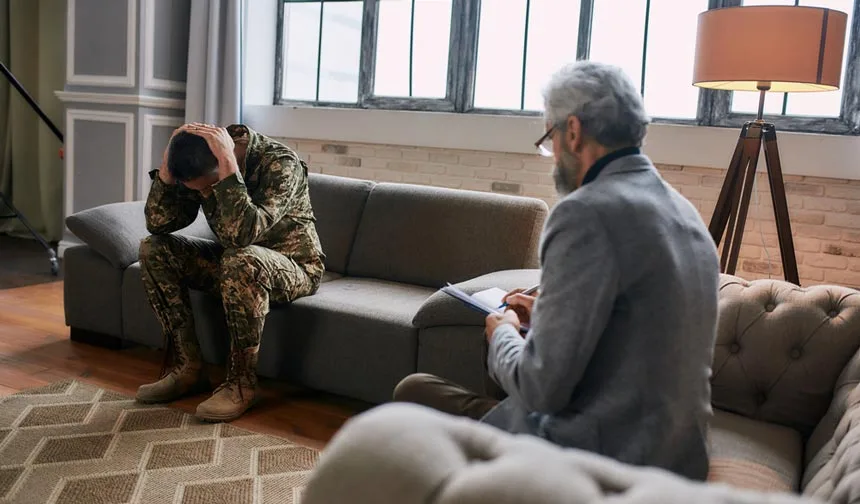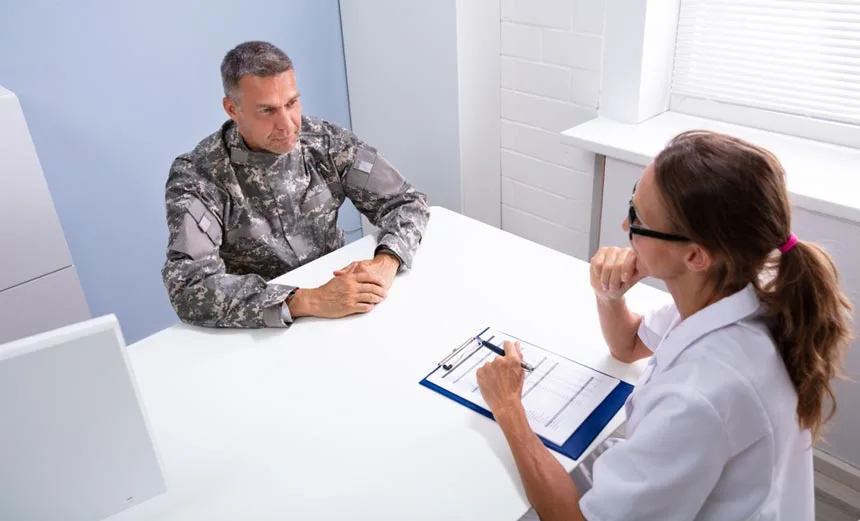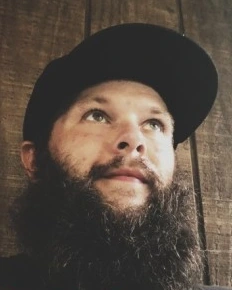SUDCC Army Substance Abuse Program Provides Clinical Care
Table of Contents
- SUDCC Army Substance Abuse Program Provides Clinical Care
- Mission Sobriety
- What Does SUDCC Stand for in the Army?
- Who Can Enroll in the Program?
- How Long is the Army Substance Abuse Disorder Program?
- Can I Make a Self Referral for Voluntary Care?
- Healing Substance Abuse Is Fundamental to Suicide Prevention
- Does TRICARE Cover Substance Abuse Disorder Clinical Care?
- Substance Use Disorder Clinical Care Will Help You Heal
- Medically Reviewed By
As a soldier, you have chosen to serve your country with honor and bravery. Sometimes, the weight of the responsibility of your job can be overwhelming. At Find Addiction Rehabs, we understand that you may have questions about seeking treatment for substance use.
You are not alone in your struggle. We are here to help you navigate through this difficult time, so please keep reading to learn valuable resources for recovery in the Army now!
Mission Sobriety
It is no secret that soldiers often face significant mental health challenges. Unfortunately, substance use disorder (SUD) is an issue that affects many soldiers. It has devastating impacts on physical and mental well-being.
You know you need professional help, and you’re doing the right thing. Your sobriety reflects your commitment to national readiness. We’re here to help you put one boot before the other to regain and enhance health and recovery outcomes. We have compiled a list of frequently asked questions (FAQs) to give you the necessary information. Our goal is a successful recovery mission.
What Does SUDCC Stand for in the Army?
SUDCC stands for the Substance Use Disorder Clinical Care (SUDCC) program. It’s designed to provide specialized care to those who struggle with alcohol or drug abuse. This program aims to promote readiness by ensuring that soldiers dealing with addiction can receive the help they need. That will help them overcome their addiction and regain control of their lives.
The SUDCC program differs from the Army Substance Abuse Program (ASAP) prevention model. ASAP’s goal is to improve the effectiveness and fitness of all Army personnel.
SUDCC provides soldiers with a more individualized, integrated medical care model. SUDCC offers many services, including behavioral health and medication-assisted treatment. It also provides soldiers with access to education and resources like support groups and aftercare programs. It can also include family members, a vital support system for a soldier. These can help them maintain their sobriety.
Doing so ensures unit readiness status. Providing co-located comprehensive substance abuse and alcohol abuse programs on or near post is typical. It makes a difference for those who attend outpatient programs while maintaining everyday life on the post.
Who Can Enroll in the Program?
Soldiers dealing with substance use disorder can enroll in the SUDCC program. Their commander or a healthcare provider may also refer them to the substance abuse program.
ASAP is open to all soldiers, whether they are sure they have a problem with drugs or alcohol or not. Military members referred to ASAP may need to complete an assessment. This step will determine if they have a substance use disorder. The program focuses on education, online resources, and prevention.
Soldiers can seek help from the SUDCC or ASAP program anytime during service. Care is available, regardless of whether they are on active duty.
A commander may refer an active duty soldier for drug testing or to either program. That happens if commanders think they have a problem with prescription drugs, illicit substances, or alcohol abuse. One instance might be when a soldier receives a DUI while off-post. They consider ordering the soldier for evaluation a sacred duty. That’s because force conservation is one of many national best practices they must implement.
Soldiers not on active duty may self-refer to either substance abuse program.
How Long is the Army Substance Abuse Disorder Program?
The length of the Army Substance Abuse Disorder Program varies. It depends on the individual’s needs and the severity of their SUD. Generally, the inpatient program lasts 30 to 180 days before a return to duty. The inpatient program averages 30 to 360 days. But either can be longer or shorter, depending on the situation. The program may involve a combination of individual and group counseling. They may also include medication-assisted treatment if needed.
Service members who complete the disorder treatment program may have to attend aftercare services. These include support groups, family members, or individual counseling. Aftercare is important. It helps service members maintain sobriety and full readiness status.
Can I Make a Self Referral for Voluntary Care?
Yes. Soldiers can make a self-referral for voluntary care in this Army substance abuse program. They can contact Find Addiction Rehabs, SUDCC, or the ASAP program. The process may involve an initial assessment to determine the level of care needed.
As mentioned earlier, service members may sometimes receive mandatory substance use disorder clinical care enrollment orders. That typically occurs when a soldier’s substance use disorder decreases readiness. It may also happen if they pose a risk to themselves or others. If soldiers receive mandatory enrollment orders, they must attend treatment. Failure to do so may result in disciplinary action.
Consider this a chance–an opportunity to change.
Healing Substance Abuse Is Fundamental to Suicide Prevention
Substance use disorder (SUD) and suicide can affect anyone, including military members. Seeking treatment for substance use disorder can also be an effective way to prevent suicide. Substance use disorder and suicide connect closely. Alcoholics and those struggling with drug addiction are at a higher risk of suicidal thoughts and behaviors.
According to a report released by the Department of Defense in 2021, 580 confirmed suicides occurred among active-duty military personnel in 2020. This figure highlights the need for effective suicide prevention measures within the military.
Evidence-Based Treatment for Military Members
An evidence-based behavioral health model can be an essential component of suicide prevention. It first provides a clinical evaluation. Then, they can address underlying mental health issues contributing to alcohol or drug abuse and suicidal thoughts. Further, treatment can provide individuals with coping skills and support networks. Proper evaluation and support services can help them manage their addiction and optimize care delivery.
It’s critical to address substance use disorders and suicide prevention in the military. Evidence-based treatment can be crucial in preventing suicide and promoting mental health in alcoholics or drug users. The good news is that treatment outcomes are generally good after completing a substance abuse program.
Does TRICARE Cover Substance Abuse Disorder Clinical Care?
One question that a soldier with a SUD may have is whether their TRICARE insurance covers rehab. The good news is that it does cover substance use disorder treatment. Care delivery could be inpatient and outpatient treatment, depending on the soldier.
The comprehensive plan covers include these:
- Medical detox
- Individual counseling
- Group counseling
- Medication-assisted treatment
- Aftercare services that help stay sober
Some out-of-pocket costs, like co-payments or deductibles, might be your responsibility. The specific coverage details for clinical treatment vary depending on the individual’s plan and care needs. Service members should contact Find Addiction Rehabs to find out about TRICARE facilities near their location. Calling them will maximize plan benefits. It’s also helpful to know coverage options and potential treatment costs.
Some treatment programs may offer financial help or sliding-scale fees. Any soldier can inquire about these options if they or other beneficiaries need help.
Substance Use Disorder Clinical Care Will Help You Heal
Finding the proper treatment for substance use disorder can be challenging. It’s especially true for soldiers who already bear the weight of national defense.
Remember: enrolling in this army substance abuse program is a sign of strength. You are not alone in this journey toward recovery. Find Addiction Rehabs commits to helping military members find the care they need for a rapid and successful recovery.
Reach out now for a confidential consultation and to get options for effective and accredited programs nationwide today!
Brandon is a highly skilled content writer and behavioral health marketer with over a decade of experience. In his own words: in my work with Find Addiction Rehabs, I have dedicated my expertise to a cause close to my heart – substance abuse recovery. Through my passion for the field, I’ve successfully compiled a track record of crafting compelling content that educates, inspires, and supports those on their recovery journeys.





